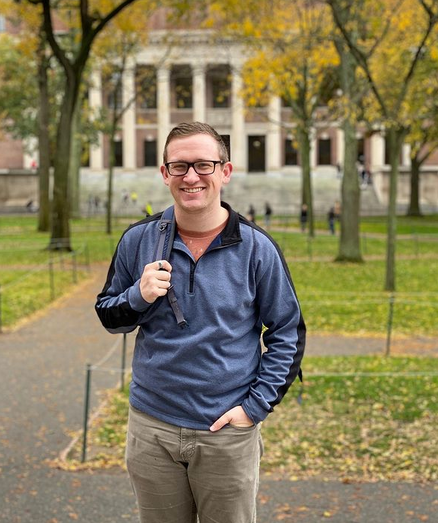“Nam sollicitudin nunc elementum enim sagittis varius. Vivamus vulputate faucibus mauris eu aliquet. Sed congue at ante ut consequat. Sed dignissim rutrum pellentesque. In eu ullamcorper diam. Phasellus hendrerit velit et enim consectetur, a iaculis erat semper. In hac habitasse platea dictumst. ”
Adam M
BA English ('13)
Describe your BYU experience
Lorem ipsum dolor sit amet, consectetur adipiscing elit. Phasellus quam eros, volutpat non faucibus nec, aliquam sit amet lacus. Duis eget augue in nulla feugiat vestibulum at at leo. Duis vitae dui nec augue faucibus laoreet. Mauris malesuada mollis lorem nec vehicula. Donec aliquam, metus vel scelerisque bibendum, elit erat interdum magna, sed interdum massa ante vitae orci. Nulla nunc orci, varius vel pharetra sed, tristique id leo. Nunc vehicula erat nec tortor mattis, vel tincidunt velit molestie. Ut placerat ipsum eu arcu luctus lacinia. Donec sodales non elit id lobortis. Vivamus risus lectus, sodales quis odio eget, posuere tincidunt lorem.
Describe your experience post-BYU
After BYU I fell into a job where I had my first real mentor, who was another queer BYU grad. He really helped me transition into the workforce and I am eternally grateful for everything I learned under his guidance. I'm now working in small business and nonprofits, and I married my boyfriend of 2 years earlier this summer.
What advice or wisdom would you share with a current LGBTQ+ BYU student?
Looking back, I wish I had been more willing to participate in the queer community that was available to me as a student. I was primarily concerned with not getting kicked out of BYU and finishing my degree - however, I let that concern keep me from connecting with USGA, which I can now see was a mistake. That being said, going to BYU as a queer Mormon is a uniquely traumatic experience, and I support anything you may need to do to get through it.
Are there any other thoughts or experiences you’d like to share?
Learning to decatastrophize potential risks has been the most helpful tool I've learned in years of therapy. As queer Mormons, there are risks we have to face everyday - familial risk, workplace risk, societal risk, etc. Everyone's risk levels are different based on the situation you are in. However, learning to analyze these risks accurately, without letting your own cognitive fears and anxieties blow them out of proportion, is a skill I've found invaluable. If it possible for you, I'd highly recommend finding a therapist well versed in cognitive behavioral therapy who can help you learn and practice this skill.
Posted January 2020

